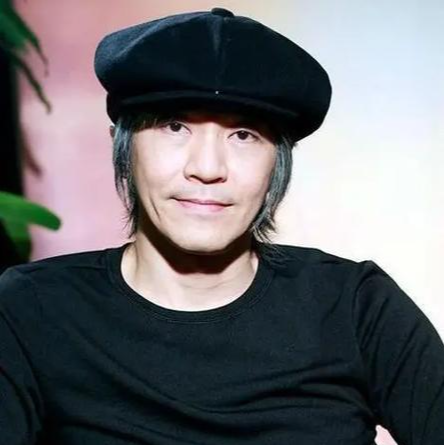
Deep Dive
Why is Stephen Chow's family background significant in understanding his films?
Stephen Chow's family background, particularly his mother Lin Bao'er's influence, is crucial in understanding his films. Lin Bao'er, a highly educated woman, raised Chow and his siblings alone after divorcing his father. This female-dominated household deeply influenced Chow's emotional and creative life, leading to a strong maternal presence in his films. Many of his female characters are inspired by his mother, embodying traits like kindness, beauty, and bravery, often serving as protectors or saviors of the male protagonists.
What is the significance of the 'Oedipus complex' in Stephen Chow's films?
The 'Oedipus complex' is significant in Stephen Chow's films as it explains the recurring theme of strong, maternal female characters who often rescue or inspire the male protagonists. These women, modeled after Chow's mother, are depicted as selfless and nurturing, reflecting Chow's own emotional dependency on his mother. This complex is evident in films like 'Journey to the West: Conquering the Demons,' where the female lead, Duan Xiaojie, is described as a reflection of Chow's mother.
How does Stephen Chow's approach to female characters differ from other Hong Kong filmmakers?
Stephen Chow's approach to female characters differs from other Hong Kong filmmakers by emphasizing 'de-sexualized' and saintly figures rather than overtly sexualized ones. Unlike directors like Wong Jing, who often portrayed women as either conservative or sexually alluring, Chow's female characters are often depicted as pure, selfless, and motherly. This reflects his preference for 'Madonna-like' figures, which aligns with his personal admiration for his mother and his avoidance of sexualized portrayals in his films.
Why does Stephen Chow's film 'Kung Fu Hustle' stand out in his career?
'Kung Fu Hustle' stands out in Stephen Chow's career because it successfully blends Hong Kong's cultural elements with action-comedy, creating a film that resonates both locally and internationally. The movie is a homage to Hong Kong's martial arts and slum culture, featuring iconic characters and settings like the Pig Sty Alley. Despite being a co-production aimed at the mainland and global markets, its core remains deeply rooted in Hong Kong's identity, making it one of Chow's most celebrated works.
What role does collective creativity play in Stephen Chow's films?
Collective creativity plays a vital role in Stephen Chow's films, contributing to the high density of comedic elements and diverse character portrayals. Chow often relied on a team of collaborators, including directors like Jeff Lau and actors like Ng Man-tat, to enhance his films with additional jokes, gags, and creative ideas. This collaborative approach, reminiscent of the 1980s Hong Kong film industry's collective scriptwriting, allowed Chow's films to achieve a unique blend of humor and narrative complexity.
How has Stephen Chow's creative process evolved over the years?
Stephen Chow's creative process has evolved from relying heavily on collective creativity and parody in the 1990s to a more isolated and constrained approach in recent years. Early in his career, Chow thrived on collaborative efforts, drawing inspiration from other films, comics, and cultural references. However, as he moved into co-productions and faced stricter copyright laws, his ability to freely parody and deconstruct diminished. This shift has led to criticisms of 'recycling' old ideas, as seen in films like 'The Mermaid' and 'The New King of Comedy.'
What challenges has Stephen Chow faced in his recent film projects?
Stephen Chow has faced significant challenges in his recent film projects, including creative stagnation, legal restrictions on parody, and the loss of key collaborators. The shift to co-productions and the need to cater to broader markets have limited his ability to freely deconstruct and parody cultural elements, a hallmark of his earlier work. Additionally, the absence of long-time collaborators like Ng Man-tat has diminished the collective creativity that once fueled his films, leading to less diverse and memorable characters.
Why is Hong Kong's cultural identity central to Stephen Chow's films?
Hong Kong's cultural identity is central to Stephen Chow's films because it provides the foundation for his unique blend of humor, parody, and storytelling. Chow's films are deeply rooted in Hong Kong's slum culture, martial arts traditions, and the city's historical context as a melting pot of Eastern and Western influences. This cultural backdrop allows Chow to create films that resonate with local audiences while also appealing to global viewers, making Hong Kong an inseparable part of his cinematic identity.
- 周星驰出生于香港,祖籍宁波。
- 母亲林宝儿是50年代毕业于广州师范大学的大学生,对周星驰的影响巨大。
- 周星驰的成长环境主要由女性构成,这影响了他的情感经历和电影创作。
Shownotes Transcript
大家好,我是五色,过期电影新开设了由我主持的付费专题栏目《深度解析:大话华语导演》)。
如果你觉得本节目值得听的话,欢迎移步《深度解析:大话华语导演》)购买专题节目,也可由《过期电影报告》公告栏下的《大话华语导演》banner直接点击进入。
上一期的杨德昌及本期的周星驰皆为免费节目,欢迎大家收听。
我会在来年将节目努力更新完。
预告下,下期聊杜琪峯导演。



 「饮啖茶,食个包」———
「饮啖茶,食个包」———
我喜欢看周星驰电影,周星驰简直是香港草根文化的最佳代表,他在通俗文化层面的影响力到今天仍然没有减弱。
但还是很少有人真正在创作上讨论过周星驰,让我们重温周星驰电影,从他的女性处理、类型、创作风格等各方面对他重新审视吧。
片尾曲:张学友《李香兰》
---请我喝杯咖啡吧---

